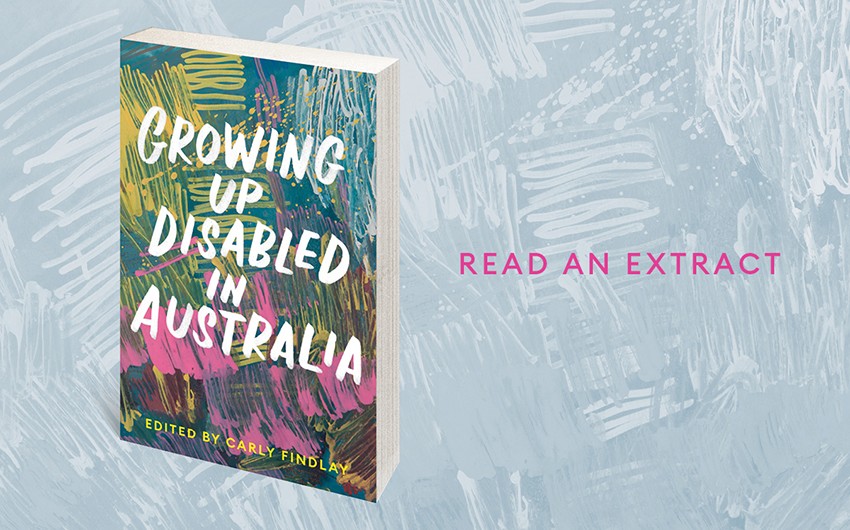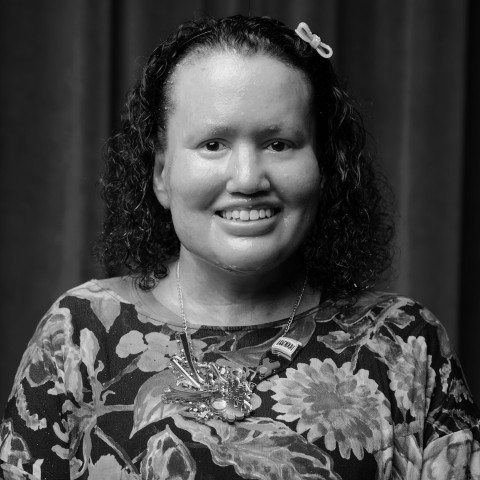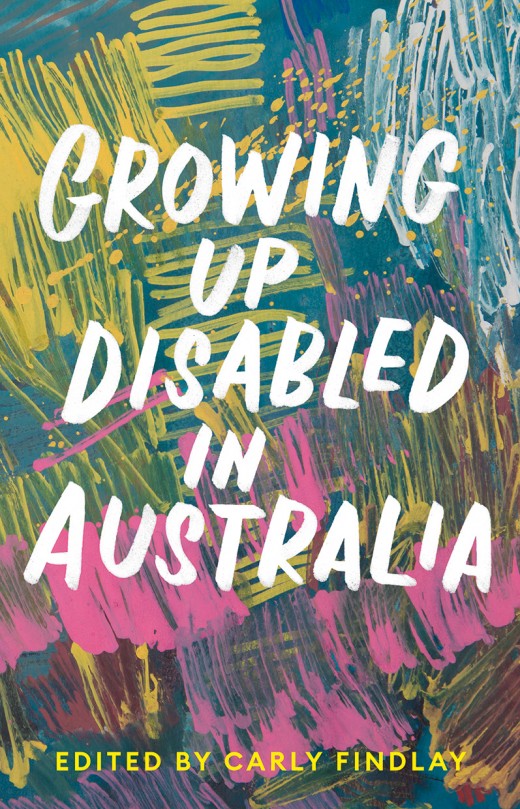News

News >
Read an extract: Growing Up Disabled in Australia
Growing Up Disabled in Australia editor Carly Findlay OAM introduces the collection.
Like some of the other contributors to this anthology, I didn’t grow up disabled. Even though I have a severe lifelong skin condition, I rejected the term ‘disabled’ because I thought it had negative connotations and I didn’t see how it related to me. The only time I saw disabled people in the media was when they competed in the Paralympics, or when a tabloid TV show was painting their life as a tragedy. And I didn’t see anyone like me. I thought disability looked a certain way. And I didn’t fit that.
Because I didn’t identify as disabled, I wasn’t able to advocate for the support I needed in school, nor recognise or speak up against discrimination towards other disabled people. In hindsight, it’s clear that I had internalised ableism. By insisting I wasn’t disabled, I was perpetuating the ‘othering’. And I lacked a sense of pride and community.
It wasn’t until I was in my mid-twenties, when I mentored young people with chronic illness, that I realised how much we had in common – serious lifelong conditions that required many specialists at the hospital, extended absences from school and work, and encountering attitudinal barriers from ignorance or discrimination. These young people allowed me to work through that internalised ableism and showed me that I could embrace the term ‘disabled’.
I began writing publicly about life with ichthyosis, which led to work in the mainstream media and presenting on a disability-led TV show called No Limits. I got to know more chronically ill and disabled people and came to understand the social model of disability. This model acknowledges the physical, attitudinal, communication and social barriers faced by people with impairments. It challenges these obstacles by arguing that society should accommodate impairment as an expected aspect of human diversity. I felt safe to embrace the label of ‘disabled’ because of the writing and friendship of other disabled people. And this meant I could finally advocate for myself and for others.
I now identify as a proud disabled woman, not wanting to hide my disability and chronic illness. And I want to help be the change in the media, so that young disabled people can see themselves and what’s possible for them.
I hope that this book can be a friend to people who need it, because it’s a friend I needed when I was younger.
This book will change history. It’s the first of its kind in Australia. And I hope it won’t be the last. Publishers – both literary and news – need to commit to publishing work by disabled people. We deserve better representation in literature.
From 2010 to 2014, Stella Young edited ABC Ramp Up. It was a place for disabled people to write about our own experiences, advocate for policy change and celebrate disability pride. The government defunded it in 2014, and there hasn’t been a dedicated place for Australian disability writing online since. While Growing Up Disabled in Australia has a finite number of stories and will never replace Ramp Up, I am glad to have helped provide a writing space for disabled people to tell their stories. I am forever thankful for Stella’s work, and I read and reference her writing regularly.
We had over 360 submissions to Growing Up Disabled in Australia. It was such an honour reading through the submissions – one of the best jobs I’ve ever had. The quality of writing is extraordinary, and there is a definite hunger from disabled people to tell their stories (and to read the stories of others).
Choosing the contributors was a hard task – I wish we could have included many more. I’m proud of everyone who submitted and encourage those who didn’t get into this anthology to keep writing and find other opportunities for their work.
This anthology shows the diversity of disability – not just in terms of impairments, but also experiences. I took an intersectional approach when selecting the work. The people in this book are disabled, chronically ill, mentally ill and neurodiverse, and inhabit the city, regional and rural regions and Aboriginal communities. They span generations – some are elders and some are still growing up – and genders, cultures and sexualities. Not everyone in the book sees disability as part of their identity, but some are waving the pride flag loudly; both responses are valid. Some people have chosen to use a pseudonym, such is the stigma or fear of speaking out about disability.
I hope this book creates a sense of identity, pride and belonging to a community – for the contributors and for readers.
I can’t wait to see these writers fly.
Growing Up Disabled in Australia is out 2 February. Pre-order now.
Share this post
About the author
Carly Findlay OAM is a writer, speaker and appearance activist. She is the author of memoir Say Hello and the editor of Growing Up Disabled in Australia. She has been published in the ABC, The Guardian, The Age, The Sydney Morning Herald, CNN and Vogue.
Author photograph by Sam Biddle.
More about Carly Findlay




